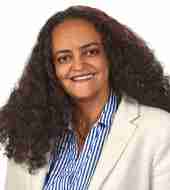Violent Extremism: How, Why, When and Where do People Get Radicalized?

Violent Extremism: How, Why, When and Where do People Get Radicalized? on ICERM Radio aired on Saturday, July 9, 2016 @ 2 PM Eastern Time (New York).
Listen to the ICERM Radio talk show, “Lets Talk About It,” for an engaging panel discussion on “Violent Extremism: How, Why, When and Where do People Get Radicalized?” featuring three distinguished panelists with expertise on Countering Violent Extremism (CVE) and Counter-Terrorism (CT).
Distinguished Panelists:

Maryhope Schwoebel holds a Ph.D. from the School of Conflict Analysis and Resolution at George Mason University and a Masters from the University of California in adult and non-formal education with a specialization in international development. Her dissertation was entitled “Nation-building in the Lands of the Somalis.”
Dr. Schwoebel brings 30 years of experience in the fields of peacebuilding, governance, humanitarian assistance, and development, and has worked for UN agencies, bilateral and multilateral and non-governmental organizations.
She served as a Peace Corps volunteer in Paraguay where she spent five years. She then spent six years in the Horn of Africa, managing programs for UNICEF and NGOs in Somalia and Kenya.
While raising a family and pursuing her doctorate, she spent 15 years consulting for USAID and its partners, and other bi-lateral, multi-lateral and non-governmental organizations.
Most recently, she spent five years at the Academy for International Conflict Management and Peacebuilding at the US Institute of Peace, where she developed and conducted training courses in over a dozen countries overseas and in Washington D.C. She wrote successful grant proposals for, designed, oversaw, and facilitated dialogue initiatives in war-torn countries, including Afghanistan, Pakistan, Yemen, Nigeria, and Colombia. She also researched and wrote policy-oriented publications on a variety of topics related to international peacebuilding.
Dr. Schwoebel has taught as an Adjunct faculty at Georgetown University, American University, George Mason University, and University for Peace in Costa Rica. She is the author of a wide range of publications on international affairs, most recently two book chapters – “The Intersection of Public and Private Spheres for Pashtun Women in Politics” in Gender, Political Struggles and Gender Equality in South Asia, and “The Evolution of Somali Women’s Fashion During Changing Security Contexts” in The International Politics of Fashion: Being Fab in a Dangerous World.
Her areas of interest include, peacebuilding and statebuilding, peacebuilding and development, gender and conflict, culture and conflict, and the interactions between indigenous systems of governance and conflict resolution and international interventions.

Manal Taha, Jennings Randolph Senior Fellow for North Africa, U.S. Institute of Peace (USIP), Washington, D.C.
Manal Taha is the Jennings Randolph senior fellow for North Africa. Manal will be conducting research to explore the local factors that facilitate or otherwise limit recruitment or radicalization of youth into violent extremism associations in Libya.
Manal is an anthropologist and conflict analyst expert with a wide range of research and field experiences in the areas of post-war reconciliation and conflict resolution in Libya, South Sudan and Sudan.
She has experience working for the Office of Transition Initiative OTI/USAID in Libya. She has worked for Chemonics as a regional program manager (RPM) for Eastern Libya on an OTI/USAID program focusing on program development, implementation and developing program strategies.
Manal has conducted several research projects related to causes of conflict in Sudan, including: qualitative research on land tenure systems and water rights in Nuba Mountains in Sudan for the Martin Luther University in Germany.
In addition to the research projects, Manal served as the lead researcher for the National Center for Research in Khartoum, Sudan, working on various programs in cultural anthropology.
She holds an M.A in Anthropology from the University of Khartoum and an M.A in Conflict Transformation from the School for International Training in Vermont.
Manal is fluent in Arabic and English.

Peter Bauman is dynamic professional with over 15 years of experience designing, managing, and evaluating conflict resolution, governance, land & natural resource management, environmental conservation, stabilization, counter-extremism, relief & recovery, and youth-focused experiential education programs; facilitating interpersonal and intergroup processes; conducting field-based research; and advising public & private institutions worldwide.
His country experience include Somalia, Yemen, Kenya, Ethiopia, Sudan, South Sudan, Burkina Faso, Nigeria, Niger, Mali, Cameroon, Chad, Liberia, Belize, Haiti, Indonesia, Liberia, Marshall Islands, Micronesia, Nepal, Pakistan, Palestine/Israel, Papua New Guinea (Bougainville), Seychelles, Sri Lanka, and Taiwan.

